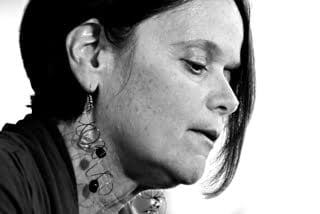
Zsófia Bán
Zsófia Bán was born in 1957 in Rio de Janeiro, Brazil. In 1969, she returned with her parents to their home country, Hungary. After studying English and Romance Languages from 1976 to 1981 in Budapest, she studied in Lisbon, Minneapolis, and New Brunswick, curated exhibitions and worked as a doctoral fellow at the Hungarian Academy of Sciences in Budapest and did research at Berlin’s John F. Kennedy Institute. She currently teaches American Studies as an Associate Professor at Eötvös Loránd University, one of Hungary’s oldest universities. In addition to American Literature of the 19th, 20th, and 21st centuries, her research foci include, Visual Culture, Holocaust Studies and Gender Studies. Bán became known for her essays on writers like Winfried Georg Sebald, the American essayist Susan Sontag and Péter Nádas, among others.Zsófia Bán had her literary debut in 2007 with »Esti iskola – Olvasókönyv felnőtteknek« (tr: Night school – A reader for adults), a collection of short pieces whose unbroken sense of humor unites their varied perspectives and references to a wide range of poetic traditions. The form of a textbook for a night school, in which each text is assigned to a school subject like geography or chemistry, is broken by the ironic tasks posed at the end of each chapter, a reductio ad absurdum of literature’s didactic function – for example, the instruction to remain as objective as possible while writing an essay on »My brother, the sad henchman«. Bán’s subtle goal is to show the gaps in history and how they can be rewritten from the perspective of the oppressed. The author thereby not only forays into Hungarian language and culture, but also taps other languages and cultures, including those of the country of her birth, Brazil. In 2012, she published a volume of short stories »Amikor még csak az állatok éltek« (tr: When there were only animals). In its fifteen stories, Bán seeks out the consequences of the traumatic uprooting of the character Anna, a little girl who loses sight of her mother in a crowd on the beach in Rio de Janeiro and, decades later, in an experimental station in Antarctica, still unconsciously seeks for answers about her past and their relationship while photographing the natural event of a white-out, in which all of a landscape’s distinguishing features are obscured by snow and its reflections.Bán has received many prizes, including the Balassa Péter Prize (2007), the József Attila Prize (2008), the Palládium Prize (2009), and the Tibor Déry Prize (2012). In 2014, she was shortlisted for the International Literature Prize awarded by Berlin’s Haus der Kulturen der Welt. She lives in Budapest.
Desire and De-Scription
Words and Images of Postmodernism in the Late Poetry of William Carlos Williams
Rodopi Press
Amsterdam / Atlanta, 1999
Amerikáner
Magvető
Budapest, 2000
Exposed MemoryFamily Pictures in Private and Collective Memory
[Hg. mit Hedvig Turai]
AICA-CEU Press
Budapest, 2010
Abendschule – Eine Fibel für Erwachsene
[Ü: Terézia Mora]
Suhrkamp
Berlin, 2012
Als nur die Tiere lebten
[Ü: Terézia Mora]
Suhrkamp
Berlin, 2014
